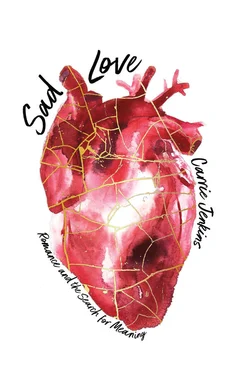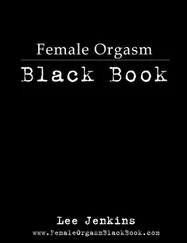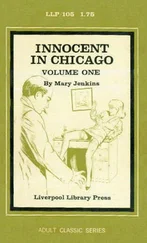I’m not trying to suggest there is something intrinsically wrong with the fairy-tale romantic story (boy meets girl, etc., etc., and they lived happily ever after). That’s a perfectly fine story, and a life that looks that way can be a perfectly good life. The problem is just that, if we tell the same story over and over, without telling any others, it becomes not just a story but a script , or a norm. And, once it’s reached that status, it can be weaponized. It can be policed. Go off-script, and you are made to suffer. This is one reason why our stories matter so much. Being a social construct, our stereotype of romantic love is in a sense “made up”: it’s grounded in our fictions and fantasies, and these stories play a crucial part in maintaining its cultural dominance. But that doesn’t mean there is nothing real going on here and nothing dangerous about it. The socially constructed norms of romantic love are “made up,” but not in the same way that Sherlock Holmes is made up. It’s more akin to how the law is made up. Sure, we made it up, but now it’s real and you’d better treat it as such.
As I see it, however, romantic love is not simply a social construct. I think it has a dual nature: it’s part social construct, part biology. Romantic love has a biological aspect in the sense that it does things to our brains and to our bodies. Love is in that respect quite a concrete, tangible thing, grounded in our evolutionary origins, susceptible to scientific study. It also has a socially constructed aspect, comprised of scripts and rules and traditions and expectations. These things are powerful 2(just like biology is), but they shift as quickly as our values do, so love’s socially constructed nature is best understood not by reaching back into our evolutionary past but by taking a well-informed look at our contextual present and our relatively recent history.
The relationship between love’s biology and its socially constructed nature, or so I argued in What Love Is , is like that of an actor playing a role. It’s as if we took certain ancient, evolved biological machinery and cast it to play the (heavily scripted) role of “romantic love” in a show called “Modern Society.” We expect our brains and our bodies to perform in certain ways. We don’t, as a rule, question the casting decision.
This book continues to focus attention on romantic love, so perhaps a word is in order about why. It’s not because I think romantic love is the most important kind of love. Far from it. It’s because romantic love is where I see all the most urgent philosophical problems boiling over. The romantic ideal and its accompanying romantic ideology are, in every sense of the word, problematic .
Many of the problems are in fact clustered around the idea that romantic love is the most important kind of love. The word “amatonormativity” was coined by philosopher Elizabeth Brake in 2011 3to refer to the idea that it’s normal and desirable for every adult to be in a romantic love relationship (of the “normal” – monogamous, permanent, marriage-like – kind), and that a normal person’s life will be centered around that relationship, that it is the most important kind of relationship. Amatonormativity positions romantic love as special, as naturally taking precedence over all other connections to family, friends or community. The “plus one” you’re expected to bring to an event is a romantic partner – or at least a prospective one, a “date” – not a sibling or a friend. The same goes for who you’re expected to “settle down” and set up a home with. These assumptions are rarely spoken out loud, but they are everywhere, and they form the backdrop to all our decision-making. That’s not to say we can’t contravene them but that, if we do so, we’ll be defying expectations.
Amatonormativity itself didn’t pop into existence in 2011; the phenomenon is much older than its name. But a name is a powerful thing. Once we can name it, we have a handle on it. It’s time we got a grip. Amatonormativity is not just old. It’s a tradition , which is a far more serious matter. Traditions can run deep, to the core of our selves, informing our identities in complex ways. 4The cultural practices with which we identify help to shape our sense of who we are, where we come from, which people are our people, and (of course) how our people do things. As a child, I learned how my people do love, and that, like it or not, became part of how I understood myself.
There is, then, a fourth piece of “received wisdom” that I want to add to the previous three. While amatonormativity is a complex and multifaceted phenomenon, the element of it that I want to focus attention on is simple:
1 Romantic love is the most important kind of love.
Again, for now I just want us to notice it and wonder about how it might strike us if it weren’t already such a well-ensconced baseline expectation.
Let me round out this introduction with a summary guide to the rest of this book. To lay my cards on the table, the book’s primary agenda is to urge that we replace the romantic conception of love with a eudaimonic conception. The romantic conception aims at an ideal (not realistic, but idealized) “happy ever after” – that is to say, a state that is pleasant for the individuals involved and is permanent. This ideal is what our current ideas about marriage are modelled on: monogamous and (mostly) heteronormative, and hence conducive to the creation of nuclear families which are culturally idealized as the locus of the happiest and most permanent kind of love. By contrast, the eudaimonic conception of love ditches the focus on pleasure (or “happiness”) and orients instead towards meaningful, creative co-operation and collaboration. This can occur in a wide range of forms and configurations, not all of which look like the nuclear family structure.
My understanding of what eudaimonic love is, and why it matters, came about through thinking about sad love. I called this book Sad Love for that reason. Sad love was my intellectual spark because it spoke back to romantic ideology so directly, demanding that I pay attention to the “happy” in the happy ever after and ask why it’s there, what it’s doing, and what is left of love when it goes away. But my goal isn’t merely to talk about sad love or sadness per se . I am trying to frame a conception of love in which sadness has a role to play as something other than a failure condition. A eudaimonic conception of love has room for the full range of human experience, because it isn’t oriented towards the “positive” emotions.
I will argue that the contemporary romantic ideal tends to make us miserable. But there are insights to be drawn from a close look at why that is the case and, indeed, why it’s actually a predictable result given what we already know about how humans work. That’s where I’ll start in chapter 1. One thing philosophers have been trying to tell us for a long time is that, when we are deliberately trying to make ourselves happy – that is, when we are pursuing happiness for its own sake – it doesn’t work. This is what’s known as the Paradox of Happiness. This first chapter also surveys the contemporary context, against which this old philosophical idea sits somewhat awkwardly: North American positivity culture positions individualistic happiness as a core ideal, and the “pursuit of happiness” is baked right into the dominant ideology of my time and place. Against this, the Paradox of Happiness emerges as an important clue about who and what we are. It suggests important failings in a positivity-oriented culture, which will turn out to have analogues in the context of romance.
Читать дальше












